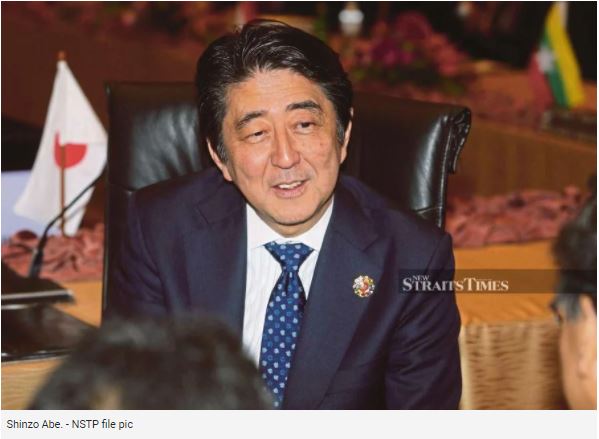Celebrating Malaysia-Japan shared values 40 years on
Emeritus Professor Tan Sri Dato' Dzulkifli Abdul Razak
Opinion - New Straits Times
March 15, 2022
THE year 2022 holds significant meaning for Malaysia and Japan, namely the 65th anniversary of relations between the countries and the 40th anniversary of the Look East Policy (LEP).
The former goes back to 1957 when the then prime minister of Japan made the first official visit to Malaya after Merdeka.
The LEP was formulated in 1982, involving the then Japanese foreign affairs minister, Abe Shintaro. This led to a historic moment when the leaders of Japan and Malaysia committed to building the foundation of a new relationship.
The policy has blossomed till today, celebrating its 25th anniversary, as well as the 50th anniversary of Japan-Malaysia diplomatic relations under the leadership of the then prime minister Shinzo Abe.
Interestingly, he is intimately connected to Abe Shintaro and Kishi Nobusuke by way of blood ties. They are his father and grandfather, respectively. This creates "a strong affinity with Malaysia", as he admitted during his lecture. It includes appreciating Japan's cultural values and heritage despite it being a modern and technologically advanced nation.
The success of the policy cannot, therefore, be measured by numbers alone. Importance must be attached to the influence of the LEP alumni in the public and private sectors.
It further cements the relationship between the countries and peoples.
Not surprisingly, the LEP has a long and interesting history involving personalities from both countries who showed the way forward.
Some had in-depth experiences to point to the right direction, an alternative to what Malaysia had been used to. It covered not just skills and knowledge, but also cultural values, including work ethics, enthusiasm for learning and working, and morals.
On this score, Shinzo Abe pledged "full support" for the LEP despite the pandemic.
He cited accepting 375 exchange students (from Malaysia) in the past two years, through thorough infection prevention measures.
He also stated the three aspects announced by the Malaysian government in the Look East Policy 2.0:
ADVANCED technology in agrotechnology, automobile industry, disaster risk reduction and the environment;
CREATIVE and service industries, including education; and, ORGANISATION management skills such as business solution and leadership.
Given the uncertainties worldwide, it is only fair to suggest that the LEP and Japan's cooperation "need to respond flexibly to such changes in tandem with the pandemic".
"As a strategic partner sharing basic values and strategic interests, it is time for Japan and Malaysia to broaden the horizon of cooperation," said Shinzo Abe.
He struck a chord mentioning his attachment to Islam while helming Japan twice as its prime minister.
More specifically, in advocating "The Best Way is to Go in the Middle", which he reasoned "because the creed reflects the commonalities between the noble spirit of Islam, including harmony, tolerance and honesty, and the faiths maintained in Japan, such as respect for others, spirit of humility and cherishing harmony among people".
Indeed, this is akin to wassatiyyah or the middle path that is encouraged in Islam as a way of life.
In fact, it was noted that "those in Malaysia who accepted Japanese values through the LEP may have noticed the commonalities between Islam and Japan".
Japan is "committed to continuously deepen bonds and work with Malaysia, a country respecting cultural and ethnic diversity, to contribute to peace and prosperity in the world".
In a nutshell, the way forward for the next phase of the LEP is to build it on the firm footing of a common humanitarian platform towards peace and sustainability.
Culturally, it is well aligned with the values of kizuna, sejahtera and rahmatan lil'alamin depicting that of Japan, Malaysia and Islam in one go!
The writer, an NST columnist for more than 20 years, is International Islamic University Malaysia rector

